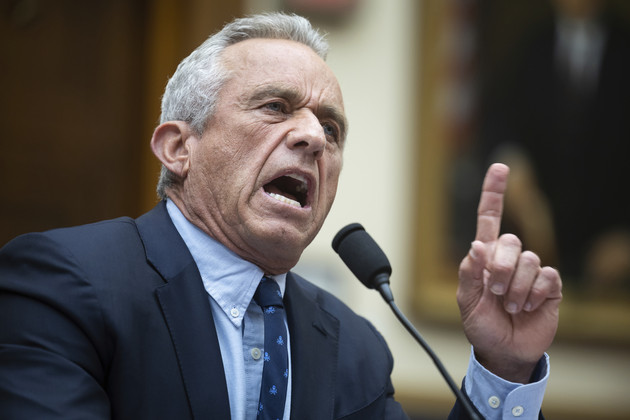
A Year Too Early: Robert F. Kennedy Jr. Requests Secret Service Protection a Year Before Legally Allowed
Article Summary
Long-shot Democratic candidate Robert F. Kennedy Jr. had his Secret Service request denied this week as it is nearly a year earlier than legally allowed. He took to X, formally twitter to express his disappointment.
Democratic candidate Robert F. Kennedy Jr. recently voiced his disappointment as the Department of Homeland Security (DHS) denied his request for Secret Service protection. Kennedy, who hails from a prominent political family and is seeking the Democratic nomination for the 2024 presidential election, expressed his concerns publicly on the X platform, formerly known as Twitter.
In his tweet, Kennedy cited a historical precedent, pointing out that candidates for the presidency have been provided Secret Service protection since the tragic assassination of his father, former Attorney General Robert Kennedy, in 1968. He emphasized that his campaign’s request for protection was backed by a comprehensive 67-page report from a leading security firm, which highlighted specific security risks beyond the common death threats that candidates often face.
However, despite his arguments and the fact that the election is still over 460 days away, the DHS, responsible for evaluating and granting Secret Service protection, did not find sufficient grounds to approve Kennedy’s request. This denial has raised questions about the criteria used by the DHS to authorize protection for candidates running for the highest office in the nation.
The Secret Service, as outlined in its legal mandate, is authorized to provide protection to a specific list of individuals, which includes the president, the vice president, their immediate families, former presidents and their spouses, distinguished foreign visitors, and major presidential and vice-presidential candidates within 120 days of a general election. It is important to note that the authorization for Secret Service protection is explicitly outlined in laws and executive orders, which govern the agency’s scope of responsibility.
Kennedy, as a major presidential candidate, does fall within the category of individuals who could potentially receive Secret Service protection in the lead-up to the 2024 election.
Who is the Secret Service authorized to protect?
- The president, the vice president, (or other individuals next in order of succession to the Office of the President), the president-elect and vice president-elect
- The immediate families of the above individuals
- Former presidents, their spouses, except when the spouse re-marries
- Children of former presidents until age 16
- Visiting heads of foreign states or governments and their spouses traveling with them, other distinguished foreign visitors to the United States, and official representatives of the United States performing special missions abroad
- Major presidential and vice presidential candidates, and their spouses within 120 days of a general presidential election
- Other individuals as designated per Executive Order of the President and
- National Special Security Events, when designated as such by the Secretary of the Department of Homeland Security
The DHS’s refusal to grant Kennedy’s request underscores the careful consideration that goes into authorizing Secret Service protection. While Kennedy expressed his disappointment over the delayed response and the ultimate denial, it is essential to recognize that the Secret Service operates within the bounds of its legal authority to ensure the security and safety of designated individuals.
As the election season progresses, Kennedy’s situation serves as a reminder that candidates must adhere to the existing laws and regulations governing Secret Service protection. While the agency plays a crucial role in safeguarding national leaders and key figures, its responsibilities are constrained by specific legal mandates and guidelines.
Read More US Political News
